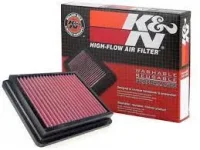- Joined
- Nov 12, 2021
- Messages
- 421
Both filters are about 2 years old with about 20,000-25,000 miles on them. It's understood that replacing them is cheap insurance. But I also know that some dirt improves filtration. You can see that there's some sediment in between the pleats, but not that much (hopefully it's visible in the last 2 pictures). What you think, are these at the peak of the filtering capability or beyond and should be replaced?





